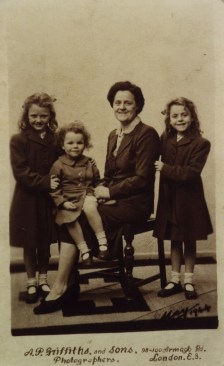Today in New Zealand, there is only one thing uppermost in everybody’s mind. Christchurch and the big one.

On February 22 2011 at 12.51 pm a devastating 6.3 earthquake shook Christchurch, killing 185 people and bringing chaos to NZ second largest city.
Today around the country and around the world, services and memorials are being held to mark this day and to pay tribute to those who lost their lives but also to those who made a difference – emergency workers, medical personnel, first responders, police etc.
Of course, all newspapers in New Zealand are carrying the quake as headline stories Here’s what our Wellington papers the Dominion Post has to say:
“Today is a day for remembering. It is also a day for learning.
It is a day for remembering the students, office workers and passers-by who lost their lives when Christchurch was struck by New Zealand’s worst natural disaster since the 1931 Napier earthquake.
It is a day to remember the courage of medical professionals and ordinary citizens who risked their lives to help survivors trapped in precariously balanced rubble.
It is a day to acknowledge the forbearance of Christchurch’s inhabitants. It is a day to remember the search and rescue teams that came from Japan, Australia, the United States, Taiwan, Great Britain and Singapore to help search for survivors.
And it is a day to learn the lessons of February 22, 2011. New Zealand sits atop the boundary of two major tectonic plates the Pacific Plate and the Australian Plate. Earthquakes are inevitable. The only uncertainty is when and where they will occur.
In Christchurch people died needlessly in some cases because buildings failed to cope with stresses they were supposed to be able to withstand, in others because unreinforced masonry buildings damaged by the September 4 quake that preceded February 22 were allowed to stand despite presenting an increased risk to the public and in yet others because of the narrow brief given to engineers.
Instead of being asked whether buildings were safe to occupy, they were asked whether buildings had been structurally weakened by the earlier quake.
For some, the difference between a few words proved the difference between life and death. Cost and the preservation of historic buildings were put above public safety.
The tension between cost and safety is not unique to Christchurch. Here in the capital, the Wellington City Council estimates there are about 435 “earthquake-prone” unreinforced masonry buildings.
Another 350 buildings, built between 1940 and 1979, are classified as “earthquake risk”. To bring both groups up to 67 per cent of the standard for new buildings would cost close to $2.5 billion.
Plainly, that is unaffordable. Building owners have to be able to recoup expenditure through rents. Older buildings, no matter how structurally sound, are not going to generate the same returns as modern, purpose-built premises.
However, doing nothing is not an option either. Hard decisions have to be made and they have to be made soon. There is no telling when an earthquake will strike Wellington.
Some older buildings should be strengthened to preserve the character of the city. Others must be demolished because of the hazard they present, not just to occupants, but to passers-by.
With judicious planning what springs up in their wake can be just as much an adornment to the city as what was knocked down.
The Christchurch quakes were unexpected. Before the first quake struck seismologists were unaware of the faultline that lay buried beneath the city. The same cannot be said of Wellington.
A big one is coming. When it arrives we must be ready.”

Christchurch Cathedral is probably the most recognisable iconic building in Christchurch and there is strong resolve to rebuild a Cathedral in the City’s centre if the land is found to be stable.









